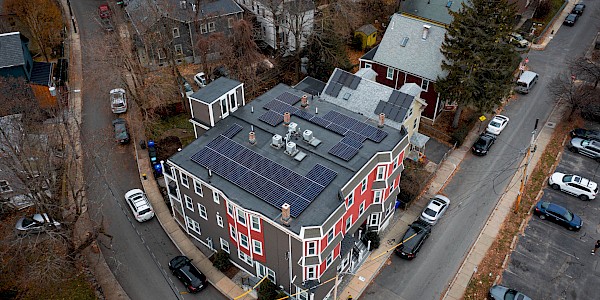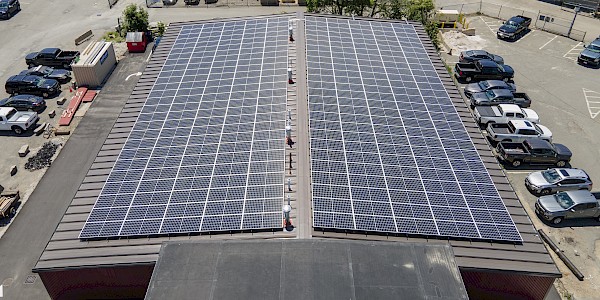Are Solar Panels Good for the Environment?
Aug. 13, 2019
As the number one local solar company based in Massachusetts, we talk to a lot of folks each and every day about why they want to switch their homes to the renewable energy of solar. The enduring energy bill savings are impressive, and the current tax breaks (via the Federal Solar Tax Credit and SMART program Massachusetts) are alluring. But here at Boston Solar, the environmental benefits of renewable energy is still one of the number one reasons our customers come to us for custom solar design and installation as they want to have a positive environmental impact.
While installing solar panels on your roof or property will provide 100% carbon emission-free, renewable energy for your home for decades to come, there is some concern about the environmental impact of the manufacturing process required to make solar panels. We have certainly seen questions like “are solar panels bad for the environment?” So are solar panels good or bad for the environment and how does using solar power affect the environment?
Solar Carbon Footprint
In manufacturing solar PV panels there are byproducts that can be harmful, which has been raising questions over the environmental impact of solar with solar skeptics. However, when you put solar panel production into context with the overall benefit from the carbon offset panels produce during their lifetime, the environmental benefits speak for itself.
For example, an average 9kW solar energy system here in Massachusetts would produce about 10,000kWh annually. In Massachusetts, 1kWh of electricity produces 0.846lbs of carbon dioxide (CO2). That means a 9kW solar PV system would offset about 8,460 lbs of CO2 in one year. In 30 years, it would offset 253,800 lbs of CO2.
10,000kWh X 0.846 = 8,460 lbs of CO2 offset by solar in 1 year
(10,00kWH x 30) x 0.846 = 253,800 lbs of CO2 offset by solar in 30 years
In that 30 year lifespan, that 253,800lbs of CO2 offset is the equivalent of almost 25 cars taken off the road, 13,000 gallons of gas unconsumed, 14,679,440 smartphones not charged or 1,900 trees planted.
Comparing Greenhouse Gas Emissions: Solar vs. Gas vs. Coal
Some may argue that there is still some greenhouse emissions to be considered with solar panel production. However, in the lifespan of a solar panel, those greenhouse gases are limited to the early stages of “life”. When you compare the greenhouse gas emissions of solar to other forms of energy, there is really no comparison. According to a World-nuclear.org study, the carbon footprint of the solar industry is only 17.8% of the comparative carbon footprint natural gas and less than 1% of the carbon emissions that make up coal!
Environmental Benefits of Solar Energy
While the production of solar panels may not be completely free of any environmental impact, when you think about the 25+ year life expectancy of a residential or commercial solar PV system, utilizing solar energy is significantly better for the environment compared to other fuel sources and reduces your carbon footprint by using energy from the sun. There will not be a more energy efficient, environmentally friendly solution to your home energy than going solar!
Plus, when you look at the economic benefits you will see over the life of your solar power system, and the 30% Federal tax deduction that is still available until the end of 2019, the benefits of solar reach far and wide. Installing a solar PV system also reduces your risk of paying unpredictable energy prices over the life of your system — which is like securing low, fixed energy costs for two and a half decades.
Still Have Questions? Ask Us!
If you are still curious about the environmental impact of solar, and how you can secure a more energy conscious future for your Massachusetts home, our team is ready and waiting to answer all of your questions.
Looking to get answers to your questions about solar panels? Call Boston Solar at 617-858-1645 or contact us today.




